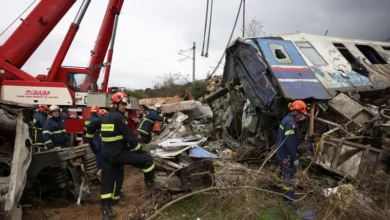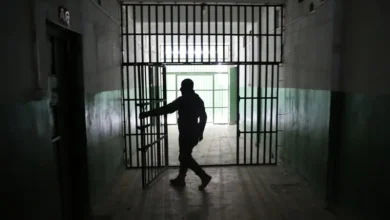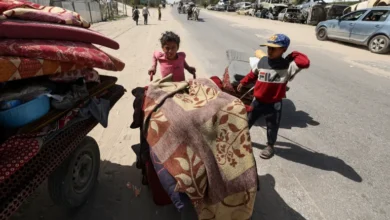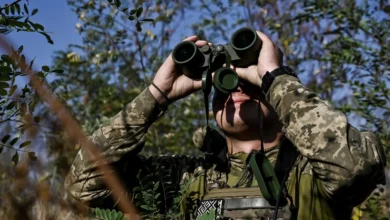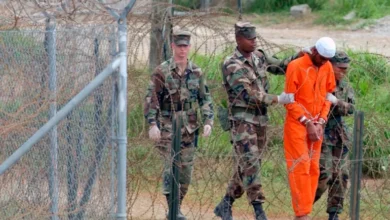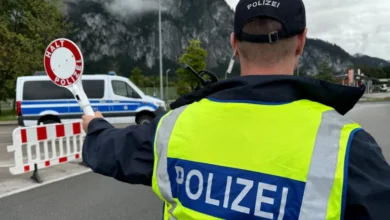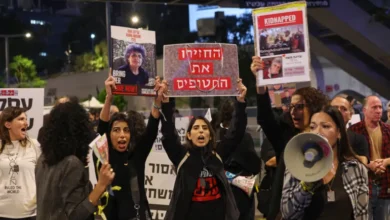New amnesty law for human rights abuses in Peru prompts fury, action
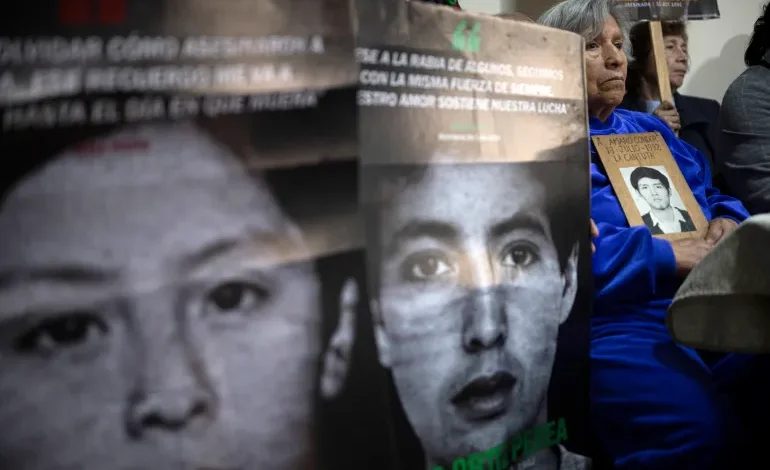
Lawyers for victims of human rights abuses committed during Peru’s decades-long armed conflict have pledged to appeal to international bodies to overturn a law passed by the country’s Congress, which would grant amnesty to prosecuted military and police members, as well as other forces.
“We’re not only going to the domestic arena to seek its invalidation, but we’ve already taken some action at the international level,” lawyer Gloria Cano, director of the Pro Human Rights Association, said during a news conference on Thursday.Lawyers for victims of human rights abuses committed during Peru’s decades-long armed conflict have pledged to appeal to international bodies to overturn a law passed by the country’s Congress, which would grant amnesty to prosecuted military and police members, as well as other forces.
“We’re not only going to the domestic arena to seek its invalidation, but we’ve already taken some action at the international level,” lawyer Gloria Cano, director of the Pro Human Rights Association, said during a news conference on Thursday.The law, which awaits President Dina Boluarte’s approval, benefits uniformed personnel who were accused, are still being investigated or are being tried for crimes stemming from their participation in the country’s armed conflict from 1980 to 2000 against left-wing rebels. Boluarte has not made any comment on the amnesty, even before its passage.
The bill was presented by Congressman Fernando Rospigliosi, from the right-wing Popular Force party of Keiko Fujimori, daughter of the late former leader Alberto Fujimori.
Fujimori’s decade as president from 1990 was marked by ruthless governance.He was jailed for atrocities – including the massacre of civilians by the army – but released from prison in 2023 on humanitarian grounds.
The new law specifies that a humanitarian amnesty will be granted to people more than 70 years old who have been sentenced or served a prison sentence.
Critics have warned that the legislation would hinder the search for truth about the period of violent conflict, which pitted state forces against Shining Path and Tupac Amaru rebels, and killed about 70,000 people.
“Granting amnesty to military and police officers cannot be a reason for impunity,” Congressman Alex Flores of the Socialist Party said during debate on the bill.
There have been numerous attempts in recent years to shield the military and police from prosecution in Peru for crimes committed during the conflict – but opponents of amnesty have found success before at international bodies.
The Inter-American Court of Human Rights has at least twice previously declared amnesty laws in Peru invalid for violating the right to justice and breaching international human rights standards.
Human rights advocates believe that Peru’s membership of the Inter-American System of Human Rights and the obligations this entails make the amnesty law unconstitutional.
Amnesty laws passed in 1995 in Peru shielded military and police personnel from prosecution for human rights abuses committed during the conflict, including massacres, torture, and forced disappearances.
Peru’s Truth and Reconciliation Commission found that the majority of the conflict’s victims were Indigenous Peruvians caught between security forces and the Shining Path. It also found that there are more than 4,000 clandestine graves across the country as a result of the two decades of political violence.
In August 2024, Peru adopted a statute of limitations for crimes against humanity committed before 2002, shutting down hundreds of investigations into alleged crimes committed during the conflict.Lawyers for victims of human rights abuses committed during Peru’s decades-long armed conflict have pledged to appeal to international bodies to overturn a law passed by the country’s Congress, which would grant amnesty to prosecuted military and police members, as well as other forces.
“We’re not only going to the domestic arena to seek its invalidation, but we’ve already taken some action at the international level,” lawyer Gloria Cano, director of the Pro Human Rights Association, said during a news conference on Thursday.A congressional commission on Wednesday approved the bill granting amnesty to members of the armed forces, national police and local self-defence committees, said legislator Alejandro Cavero, third vice president of the country’s Congress.
Cano also said her association had already alerted the Inter-American Commission on Human Rights and Inter-American Court of Human Rights, and planned to go to the United Nations, as well.
After the Peruvian Congress passed the bill, Volker Turk, the UN’s national human rights coordinator, said on X that “impunity does not hide the crime, it magnifies it.”
Amnesty International earlier urged the legislature to side with victims and reject the bill. “The right to justice of thousands of victims of extrajudicial executions, forced disappearances, torture, and sexual violence would be violated,” the rights group said on X.
A coalition of human rights organisations in Peru said the new law could wipe out 156 convictions and another 600 cases that are being prosecuted.The law, which awaits President Dina Boluarte’s approval, benefits uniformed personnel who were accused, are still being investigated or are being tried for crimes stemming from their participation in the country’s armed conflict from 1980 to 2000 against left-wing rebels. Boluarte has not made any comment on the amnesty, even before its passage.
The bill was presented by Congressman Fernando Rospigliosi, from the right-wing Popular Force party of Keiko Fujimori, daughter of the late former leader Alberto Fujimori.
Fujimori’s decade as president from 1990 was marked by ruthless governance.He was jailed for atrocities – including the massacre of civilians by the army – but released from prison in 2023 on humanitarian grounds.
The new law specifies that a humanitarian amnesty will be granted to people more than 70 years old who have been sentenced or served a prison sentence.
Critics have warned that the legislation would hinder the search for truth about the period of violent conflict, which pitted state forces against Shining Path and Tupac Amaru rebels, and killed about 70,000 people.
“Granting amnesty to military and police officers cannot be a reason for impunity,” Congressman Alex Flores of the Socialist Party said during debate on the bill.
There have been numerous attempts in recent years to shield the military and police from prosecution in Peru for crimes committed during the conflict – but opponents of amnesty have found success before at international bodies.
The Inter-American Court of Human Rights has at least twice previously declared amnesty laws in Peru invalid for violating the right to justice and breaching international human rights standards.
Human rights advocates believe that Peru’s membership of the Inter-American System of Human Rights and the obligations this entails make the amnesty law unconstitutional.
Amnesty laws passed in 1995 in Peru shielded military and police personnel from prosecution for human rights abuses committed during the conflict, including massacres, torture, and forced disappearances.
Peru’s Truth and Reconciliation Commission found that the majority of the conflict’s victims were Indigenous Peruvians caught between security forces and the Shining Path. It also found that there are more than 4,000 clandestine graves across the country as a result of the two decades of political violence.
In August 2024, Peru adopted a statute of limitations for crimes against humanity committed before 2002, shutting down hundreds of investigations into alleged crimes committed during the conflict.
